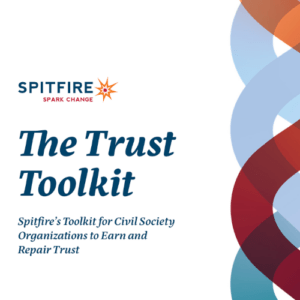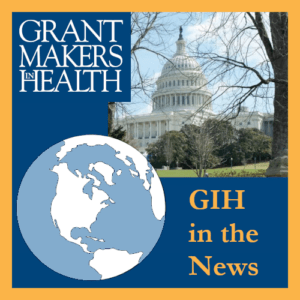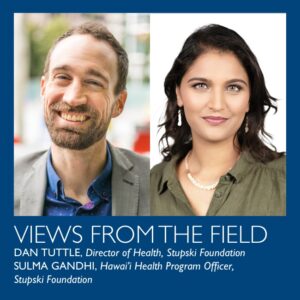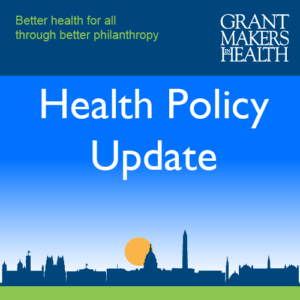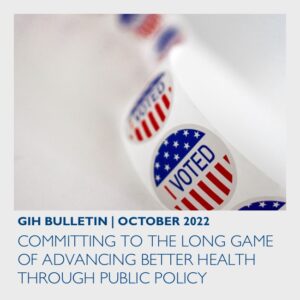Explore Community Engagement and Empowerment Topics
Latest Resources
GIH President and CEO Cara V. James Joined The Rural Impact Podcast for a Conversation about the Intersections of Policy and Philanthropy
On December 4, 2025, Cara V. James, President and CEO of Grantmakers In Health (GIH), was featured in an episode of The Rural Impact podcast. She joined Michelle Rathman, host of The Rural Impact and strategic communications advisor in health care policy, for a conversation on the intersections of policy and philanthropy, challenges with rural health funding, and more. “Policies that are impacting rural communities are…
Roles for Philanthropy as Medicaid Changes Take Effect
For those of us who have worked toward health equity, who have spent the past few years building toward incremental gains and pushing for larger change, the events of this year can feel like one big backslide. At times, it’s overwhelming. Yet this is not the time to get bogged down by the size of the challenge or by analysis paralysis. From where I sit, I see five roles that philanthropy can play in the rollout of changes to Medicaid.
Acting with Urgency: Stupski Foundation Accelerates Its Spend-Down Grantmaking
In this interview, Grantmakers In Health’s Maya Schane spoke with Dan Tuttle and Sulma Gandhi of the Stupski Foundation about the foundation’s spend-down strategy and acceleration of grantmaking in 2025 in response to federal policy changes.
Reports and Publications
GIH Bulletin: October 2023
Grantmakers In Health began 2023 by announcing an ambitious set of health policy priorities supporting four key goals—to advance health equity and social justice, to expand health care access and improve quality of care, to improve population health, and to promote community engagement and empowerment. Throughout the year, we aligned our work with our policy agenda, which was reflected in much of the programming at the 2023 GIH Annual Conference in Minneapolis, in our recent position statement on the 2023 Farm Bill, and in much of our other programming. Next week’s Fall Forum in Washington, DC, furthers GIH’s policy agenda, serving as a springboard for our continued engagement on policy in 2024.
Health Policy Update: November 2023
The Health Policy Update is a new monthly newsletter produced in collaboration with Trust for America’s Health. Drawing on GIH’s policy priorities outlined in our policy agenda and our strategic objective of increasing our policy and advocacy presence, the Health Policy Update provides GIH Funding Partners with a range of federal health policy news.
GIH Bulletin: October 2022
Every year around this time, we participate in a time-honored process of voting for candidates we believe align with our values. As people across the country prepare to vote in state and local elections, those of us working in health philanthropy should take a moment to reflect on what we can do to support policies to advance better health outcomes.






